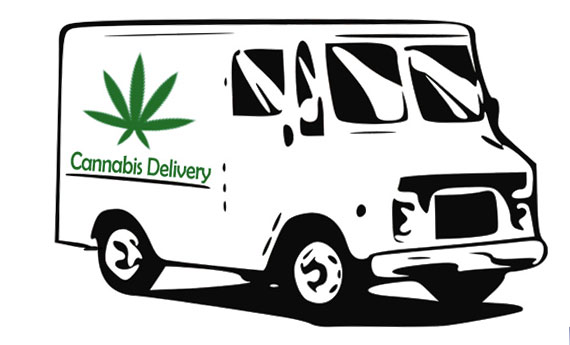Online cannabis sales surge as interest for delivery services grows amid COVID-19

It’s no secret that the coronavirus pandemic has had a monumental impact on everyday life. From social distancing measures to obligatory mask-wearing, the world as we once knew it is merely a distant memory.
On the plus side, the COVID-19 health crisis has had a positive influence in some areas of business and consumer convenience. One such example is cannabis delivery.
Regulatory overhauls allowing cannabis delivery during the pandemic suggest that this highly sought-after service could be here to stay. The level of interest for acquisitions in this area is rising amid the growing popularity of e-commerce.
Some cannabis companies have gone as far as to acquire delivery-only retail stores. Meanwhile, other investors have focused on the acquisition of vertically-integrated cannabis firms that include home delivery in their operations.
“I think these mergers and acquisition (M&A) transactions are a part of a bigger phenomenon, which is the growth of delivery,” said investment banker and data analytics director at Viridian Capital Advisors, Frank Columbo. His company monitors cannabis industry-focused capital raises, and M&As. “It’s one way to achieve that: you acquire it.”
Examples of recent delivery deals in the cannabis industry
Cannabis companies that invest in delivery acquisitions can increase the potential of their existing operations by building expertise in this area. Not only this, but they can effectively attract a large base of cannabis delivery customers and even integrate delivery for customers in other markets.
“Home delivery allows companies to reach out to places where they would have loved to have had a dispensary, but can’t,” said Columbo, who noted that numerous jurisdictions have chosen to opt-out of dispensaries in California, where delivery “is critically important because of the nature of local regulation.”
In June, California cannabis company Terra Tech revealed that it had entered into an agreement to buy Sacramento-area delivery company SilverStreak Solutions for an undisclosed amount.
“Certainly, with COVID, the direct-to-consumer business expanded quite considerably,” CEO Frank Knuettel said to MJBizDaily reporters. “But we don’t think that that’s a short-term issue. We think there’s a real long-term value and component to the cannabis sector in the delivery operations in California.”
In December 2020, Florida-headquartered cannabis multistate operator Stem Holdings completed a 41.3 million Canadian dollar (USD$31.1 million) acquisition of Driven Deliveries. The California cannabis delivery service now goes by the name of “Driven by Stem.”
Following close observation of the adoption of consumer goods delivery during the coronavirus pandemic, Stem CEO Adam Berk says that his company realized that they needed to “be in that last-mile delivery business.” As the former CEO of food-ordering service Osmio – which was renamed “Grubhub” – Berk acknowledges the fact that it takes time to run a successful e-commerce business.
Cannabis delivery acquisitions extend far behind California. In April, Chicago-based multistate cannabis operator Cresco Labs finalized its $213 million acquisition of Bluma Wellness. The Florida-based medical cannabis company also boasts a home delivery operation.
What does the future hold for cannabis delivery services?
The pandemic made 2020 a record year for cannabis and 2021 looks set to continue reaping the rewards. As delivery regulations change amid the ongoing pandemic, delivery-focused acquisition opportunities – which can help markets to recover from the economic damage caused by COVID-19 – are blossoming.
Progress in this area has been made in many states, such as Colorado, where the first medical cannabis delivery permit was issued in 2020 and the first adult-use cannabis delivery permit was issued earlier in the year. In Massachusetts, more than 90 cannabis delivery license applications were submitted as of late June.
The trend is continuing in Canada, too. British Columbia, which is the fourth-biggest legal market in the nation, recently started offering home delivery by private sector cannabis retailers.
“At a micro level, (direct-to-consumer delivery) is one of the more appealing asset classes in the cannabis sector. In states where direct-to-consumer (delivery) is allowed, I certainly would expect to see an increased trend of acquisitions,” suggested Knuettel, who noted that home delivery and remote purchasing seem to be favored more by younger consumers than any other age group.
“And that matches pretty well with the growth in the cannabis sector.”









